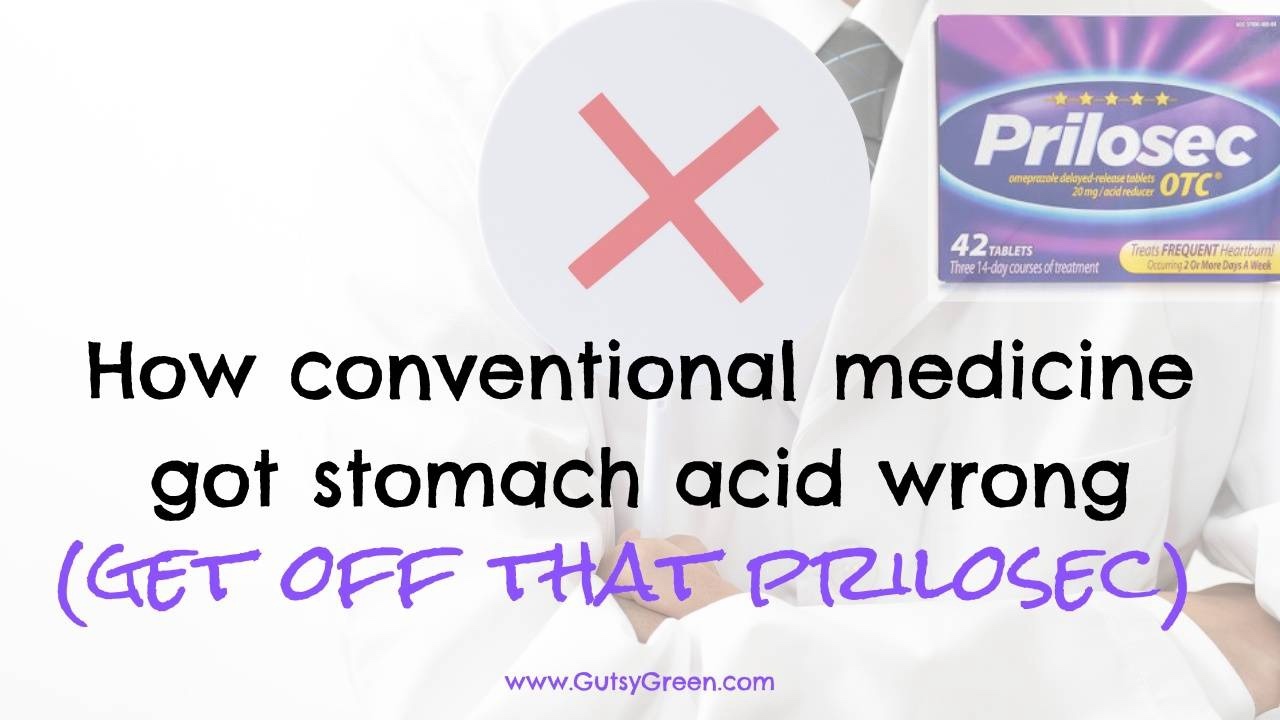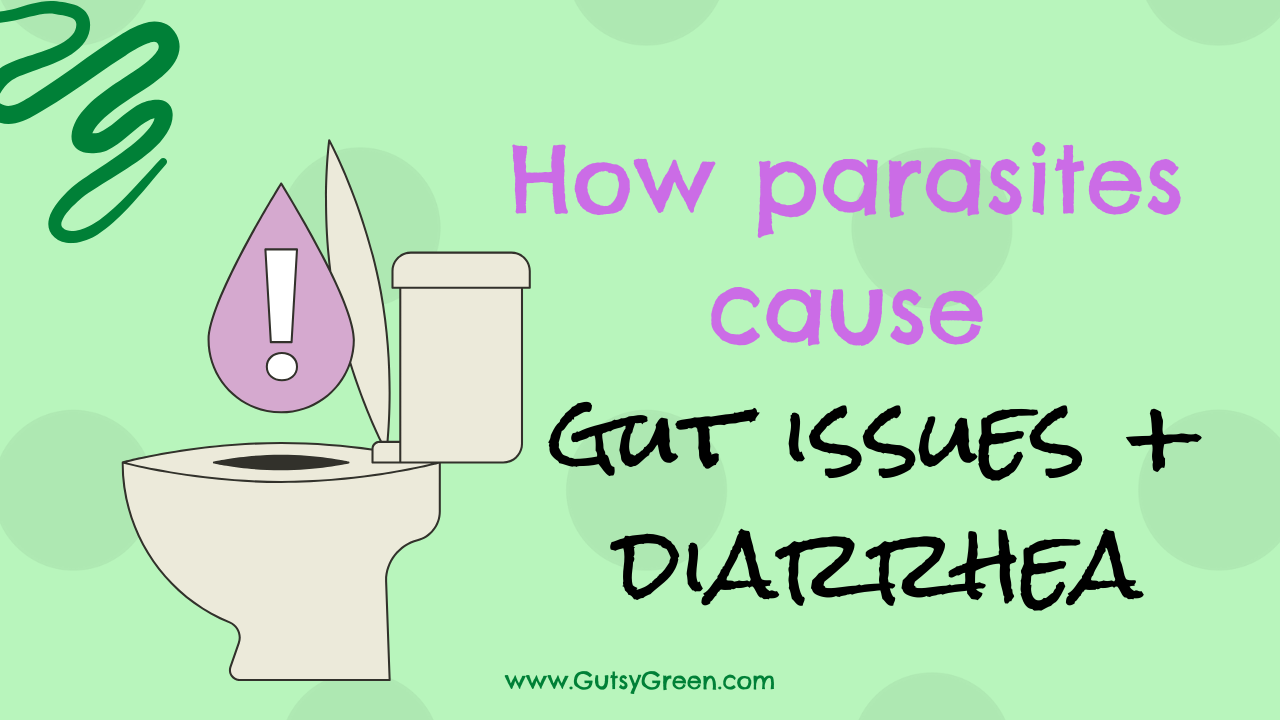The conventional medical community got stomach acid wrong - I'd get off of that Prilosec if I were you
Feb 22, 2021
Gather round, children, it’s time for one of my favorite cautionary tales.
The harrowing story of Prilosec (omeprazole) can serve as a grim warning for the dangers presented by the conventional medical community’s tendency to emphasize symptom remediation instead of cultivating fundamental understanding about how our digestion and bodies actually work.
And how do they work? In intimately related systems and feedbacks that dysfunction when we turn off even one seemingly isolated component.
Stomach acid is important.
It’s prudent to begin our conversation in the tummy, where Prilosec does its magic work. Let’s first take a good hard look at gastric acid and what the heck it even does. After we clarify the role stomach acid plays in the body, we’ll use this to help us to better understand what happens when we turn off the proverbial acid-faucet with Prilosec.
Gastric acid serves 3 major roles in the body:
1) It’s an acid barrier.
As the first line of defense, the stomach acts as a potent furnace meant to kill whatever microbe comes within its walls. Pathogens or opportunists are something that we actually regularly ingest, simply by way of breathing and eating. These critters need to be effectively neutralized, otherwise they could go on to wreak havoc in the intestines (where they would find a nutrient-rich and hospitable home).
Acidity is measured using a scale called ‘Power of Hydrogen’ or ‘pH’ for short. The pH scale runs from 0 to 14, where 0 is the most acidic rating, and 14 is the most basic or alkaline. Battery acid, for example, has a pH of around 0, and water, which is neutral, has a pH right in the middle at 7.0.
In order for the acid barrier to be effective, the pH needs to fall between 1.5 and 3.0 – VERY acidic.
2) It breaks down food.
We need strong stomach acid in order to separate most nutrients from the proteins they come attached to in food-form, so that we can actually absorb them. This is especially true for minerals and B-Vitamins. In fact, without effectively separating nutrients from their proteins the body fast-tracks them for elimination and bypasses all absorption pathways.
Beyond nutrition, we require stomach acid to reduce our food into a liquified form called “chyme” which is the only safe form of food for the sensitive intestinal tissue. Otherwise, undigested food particles can cause structural damage and feed problematic microbes, leading to negative symptoms.
3) It acts as a signaling mechanism.
Stomach acid, and its potent acidic pH acts as a signaling mechanism. You could think of it like a traffic light that green-lights other digestive secretions to be released, such as pancreatic enzymes and fat-digesting bile. Both of these are very important for proper nutrient absorption and food breakdown. Likewise, when there isn’t enough acid in the stomach, these secretions don’t get signaled, and are subjected to an erroneously long red light. This can often lead to digestive distress.
Stomach acid also signals the esophageal opening between the esophagus and stomach called the Lower Esophageal Sphincter (LES) to open and close at the proper times. If the LES doesn’t get the red-light signal, it can remain open, allowing the stomach’s acidic contents to reflux back into the esophagus and burn the tissue.
You may be wondering: OK, if all of that is true and stomach acid is so great, then why would it make sense that the doctor wants to suppress my stomach acid with a proton-pump-inhibitor or acid-blocking medication like Prilosec?
Great question! We’re almost there.
The real cause of reflux/GERD/heartburn
First let’s talk about what actually causes reflux, GERD, and heartburn symptoms.
To rehash, the esophageal opening (LES) separates the esophagus from the stomach. In those experiencing reflux symptoms, the LES is malfunctioning and opening at the wrong time.
Why? This is almost always caused by a signaling discrepancy caused by – wait for it - the stomach acid being too weak.
Yes, that’s right, I said reflux is largely driven by stomach acid being TOO WEAK! And don’t you forget it.
Let me explain further.
There are many factors in modern life that may lead to stomach acid levels decreasing below optimal levels. Populations who experience this are referred to in the medical community as having a condition called ‘hypochlorhydria’. Some of the driving factors include:
-
chronic stress levels
-
high levels of carbohydrates present in the diet
-
nutrient-poor diets that create nutrient deficiencies
When the stomach acid creeps up into a weakened pH - between 3.0 and 5.0 - it is no longer potent enough to give the red light that triggers the LES to close, so it remains open. This allows the contents of the stomach to bubble up into the esophagus. These contents are still plenty acidic enough to cause damage, but they’re not acidic enough to result in normal function.
It’s too hot, yet not hot enough.
Ironically, making the stomach acid HOTTER, lowering the pH back down to the optimal window of 1.5 - 3.0, can often work to recalibrate the LES function and thereby alleviate reflux-like symptoms.
So where does Prilosec come in?
Prilosec works by weakening an already compromised stomach acid pH even further - to between 5.0 and 7.0. Do you remember what else has a pH of 7.0?
Water.
Prilosec basically turns your stomach acid into water.
This is actually very logical from the standpoint of acid reflux. Afterall, if there’s dangerous acid present in the esophagus, why shouldn’t it follow that neutralizing that acid into harmless water would make sense? Water comes into contact with our esophagus tissue all the time and never causes damage.
Problem solved.
Well, this would be a truly golden idea, Nobel-Prize-worthy maybe… if we didn’t need stomach acid for all of that other stuff we talked about previously. Just, like, living, or whatever.
Theoretical consequences of Prilosec
Based solely on the 3 major roles of stomach acid in the body, shutting the stomach acid off with Prilosec leads to the following theoretical problems:
1) The acid barrier becomes compromised, which means your defenses are down, and microbial invaders are free to colonize your GI tract willy nilly.
Now especially, in the context of this global pandemic, where we truly understand the risk of failing to neutralize a microbial threat before it does you harm, we would all do well to avoid this fate. In fact, a recent study showed that those infected with the Coronavirus who were currently on acid-blocking medications had a 79% increased risk of severe clinical outcomes compared to their non-medication using counterparts.
But beyond this sobering statistic, increasingly, disease onset is tied to microbial imbalances and the gut dysfunction they can drive. One of the only ways that we’re able to prevent this from happening is to make sure that our acid barrier is not being compromised by a weakened pH.
Water-like stomach acid induced by Prilosec, as you may guess, is completely ineffective at killing microbes – tons of microbes live in water! So it’s no wonder the use of PPIs is highly associated with intestinal dysbiosis.
2) Failing to break down food properly into liquid may mean the mixture’s irregularities can cause damage to the structural integrity of the gut lining, leading to Leaky Gut. The food particles can also serve as food that fuels microbial overgrowths and dysbiosis.
What do you think would happen if you put a meal’s worth of food into a big bowl of water for a few hours? Would the food break down? Would it begin to rot, to putrefy, or rancidify? Would harmful microbes begin to colonize it? And, last question, do you really want this process happening inside of your body?
Failing to properly break down food via water-like stomach acid may also translate to nutrient deficiencies. If the vitamins and minerals fail to be severed from the proteins they come attached to, your body fails to get any nutrients. Over time, this would deplete our nutrient reserves and cause deficiencies that may lead to high inflammation levels and other health problems.
3) When the pH rises too high, the other digestive secretions don’t get released, throwing a wrench into the chemical cascade that typically results in proper food breakdown, and can result in the same intestinal problems that we discussed above.
Pancreatic enzymes are essential for digesting proteins, and bile is absolutely necessary for digesting fats. These substances, much like the LES, only get triggered to be released when the pH of the stomach is between 1.5 and 3.0. It follows then, that water-like stomach acid created by Prilosec exacerbates maldigestion even further by failing to engage these fundamental secretions.
Conditions associated with PPI use
Beyond just this theoretical reasoning for why it’s probably a bad idea to make your tummy into a water bottle, we also have a bunch of evidence now, tying the long-term use of Prilosec to the onset of many different chronic conditions.
Let’s look at a handful of them below.
If we think about how stomach acid is needed to sever minerals from the proteins they come attached to in food in order for absorption to occur, it’s no wonder why bone and connective tissue disorders are so prevalent for those taking Prilosec. Bones are made of minerals! And they require constant mineral intake in order for our bodies to fortify and repair. This is especially true as we age.
We need stomach acid to digest our food and kill microbial invaders. When this fails, our immune system has a LOT to do. Suddenly, undigested food proteins cause damage to our tissue and thus trigger an immune response where these normally harmless foods are tagged as invaders that need to be destroyed. Likewise, when harmful microbes make it past the stomach and into the intestines, our immune system can become overwhelmed and exhausted trying to keep them all in check.
The chronic onslaught of both food and microbial threats can lead to irregularities in how our immune system functions, and confusion that results in the failure to distinguish between these invaders and ‘self’, resulting in autoimmunity.
Our brains need nutrients, especially fat. While we understand how nutrient absorption can be impaired with low acid levels, which may lead to deficiencies over time, it’s also true that our fat-digesting bile fails to release when we don’t have sufficient acid levels. This leads to fatty acid deficiency, and the brain needs plenty of fatty acids for optimal function.
Did you know that 90% of Serotonin is produced not in the brain, but the gut? It’s no wonder that when the gut issues associated with low stomach acid - dysbiosis and leaky gut – take hold, that basic functions like producing these mood-enhancing hormones are unable to take place. Over time this can result in drastic mood disorders.
Cancers by in large indicate severe immune dysfunction, which we know can happen when the immune system’s biggest shield, the acid barrier, goes down, and it has to scramble to keep up with all of the new threats. This immune dysregulaton can over time translate to severe cellular dysfunction, such as that which occurs in cancer. It’s no coincidence that gastric and liver cancers are the most typical manifestations here as these organs are where Prilosec is acting on the body: disrupting the acid producing cells in the stomach and being metabolized in the liver,
While these are the most well-researched conditions associated with chronic PPI use, more research linking these medications to new conditions come out every day.
If you’re currently on a PPI like Prilosec and also suffer from a chronic condition, I suggest simply googling “Proton pump inhibitor and [condition]”, and seeing if there is a relevant research paper on the topic.
If nothing comes up, think about the principles we’ve discussed in terms of the roles of stomach acid in the body – can you think of a possible link?
Not for long-term use
Now for the cherry on the cake. It says right on the label that Prilosec is not meant to be used on a long-term basis.
So why do doctors prescribe these? Well, there’s a lot of literature that shows that its use alleviates the symptoms of GERD, reflux, and heartburn (though the way this is achieved is problematic to say the least), and the negative effects of the medication can take a long time to show up. They’re not acute reactions, they’re more insidious, occurring at a chronic low-level over time until cumulative dysfunction results in symptoms or disease.
Instead of getting mad at your doctor, remember that they were just trying to help you by alleviating your unpleasant symptoms. And thank goodness we have so much literature now that sheds light on these issues.
While this is not medical advice, and any decision about medication use is between you and your doctor, you may wish to broach the subject with your medical practitioner.
Here’s the good news:
In most cases, the literature shows that it’s possible to safely get off of these drugs and re-acidify your stomach so that you may live symptom free without being at increased risk for disease.
The way to do this is with the S.A.F.E. method. Learn more about that here. (Not to brag, but It’s kind of my specialty.)
Takeaway:
Those poor blokes who took a stab at solving GERD and reflux with Prilosec deserve some credit. They understood that acid was involved, but unfortunately, they miscalculated the foundational importance it played in our physiological health.
Often, righting the stomach acid ship is a moment of true glory for those suffering from chronic health symptoms. For myself, I call it the Gettysburg in the war I won (am currently winning) against my autoimmunity.
So now that you’re armed with knowledge about the subject, do yourself a favor and don’t underestimate what you’ve learned for the importance of your health. Read: fix that stomach acid!
Have you taken our free quiz yet? It'll tell you whether or not you are likely to have low stomach acid.







